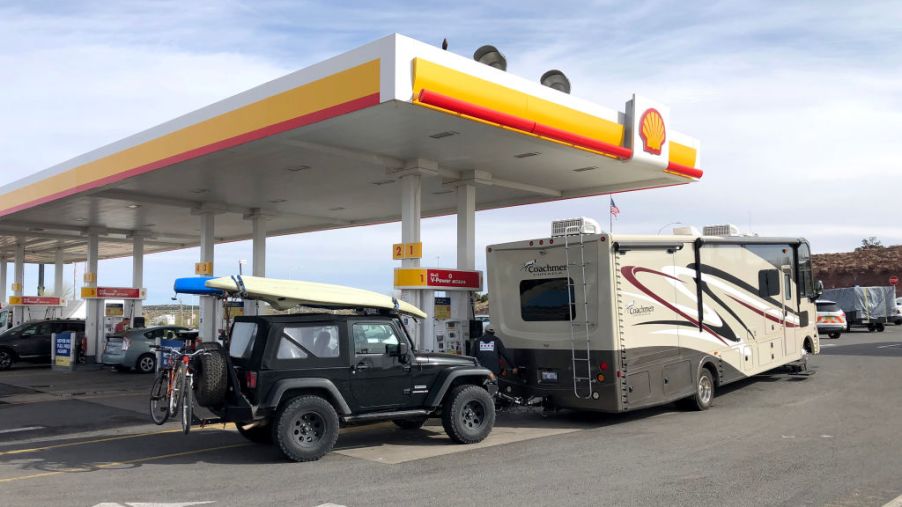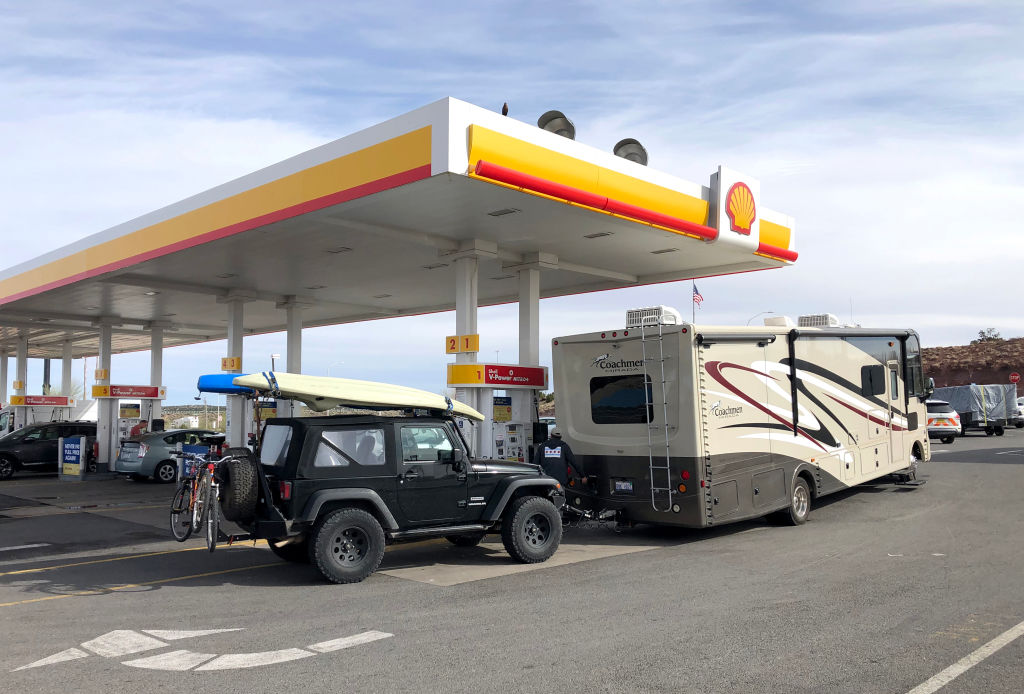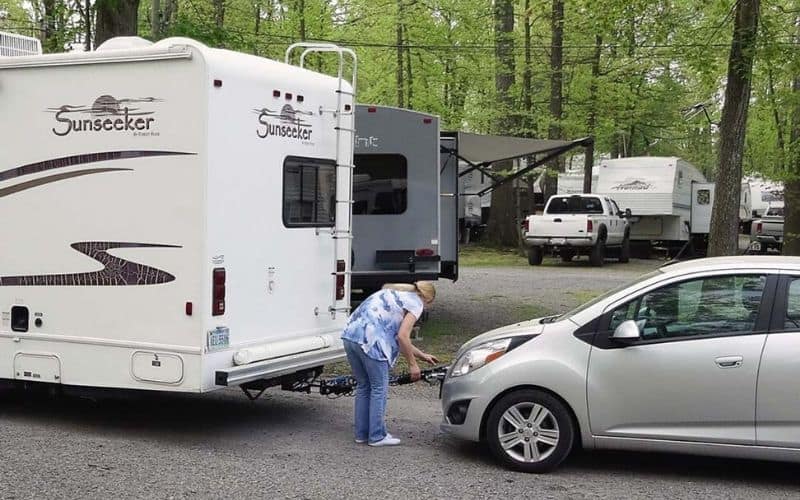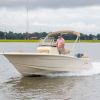
Common Problems You Might Face When Towing With Your RV
There are a number of reasons you might want to tow with your RV. But RV towing isn’t always the simplest of tasks. We’ve put together a list of some common problems you might face when towing with your RV.

If you have a camper or motorhome and you’re heading out on an adventure, you may want to tow your Jeep Wrangler for off-road trails. Or perhaps your family wants to bring the boat along. Regardless of what or why you are towing with your RV, there are some hiccups that RV owners may deal with along the way.
Why you might want to tow with your motorhome
There are times when it makes sense to leave the RV motorhome setup. For exploring, going to get supplies, or hitting a nearby museum, you may want a second vehicle that’s a little easier to navigate on steep mountain roads or grocery story parking lots. So what are some issues you might run into when towing with your RV?
One common problem RV drivers deal with when they tow a second vehicle or a small trailer behind their RV is that it bring the fuel mileage even lower. According to RVing Know How, actual fuel economy ranges pretty widely design on things like weight as well as whether your camper is gas or diesel powered. That said, most motorhome classes get pretty low miles per gallon.
Fuel economy in the single digits per gallon isn’t uncommon. It’s common knowledge that towing robs your fuel economy. If you are driving a gas powered motorhome that only gets 6-10 mpg on the highway, imagine how those numbers may decline should you decide to haul your Jeep Wrangler along too.
Finding a compatible dinghy
According to RV Life, your second vehicle that’s towed behind your RV is called a “dinghy” or a “toad.” One of the most common problems you might face when towing with your RV is how difficult it is to find a compatible dinghy. It’s important to find something that can actually tow flat (all four wheels on the ground).
This isn’t as easy as it sounds. Various transmissions, drivetrains, etc. limit many vehicle from being towed flat. In addition, not every model in a lineup has the same flat towing ability as its corporate siblings. Varied engine displacement or transmission types can mean a yes or no to flat towing ability.
In fact, this issue can be such a hassle that it’s one reason some motorhome, camper, or RV drivers opt out of RV towing. No matter what, be sure to read up on the specifications for your exact vehicle before towing it behind an RV. If you cover the bases and proceed with both knowledge and caution, things should go as planned. But if you incorrectly tow a car, truck, or SUV behind your RV it could lead to disaster.
RV towing and tire problems
Towing anything adds additional stress on your powertrain and drive system. In addition, parts can wear more quickly. That said, if you tow a trailer or a flat vehicle behind your RV there’s a high likelihood you’ll run into tire problems.

With any vehicle––in almost any driving situation––tire issues are one of the most common problems. Whether you end up with a blowout on your towed load or on your actual motorhome, it’s going to quickly mean putting the good times on hold for necessary repairs. While towing with your RV or motorhome has its benefits, these are some common problems you may have when towing with your RV.



